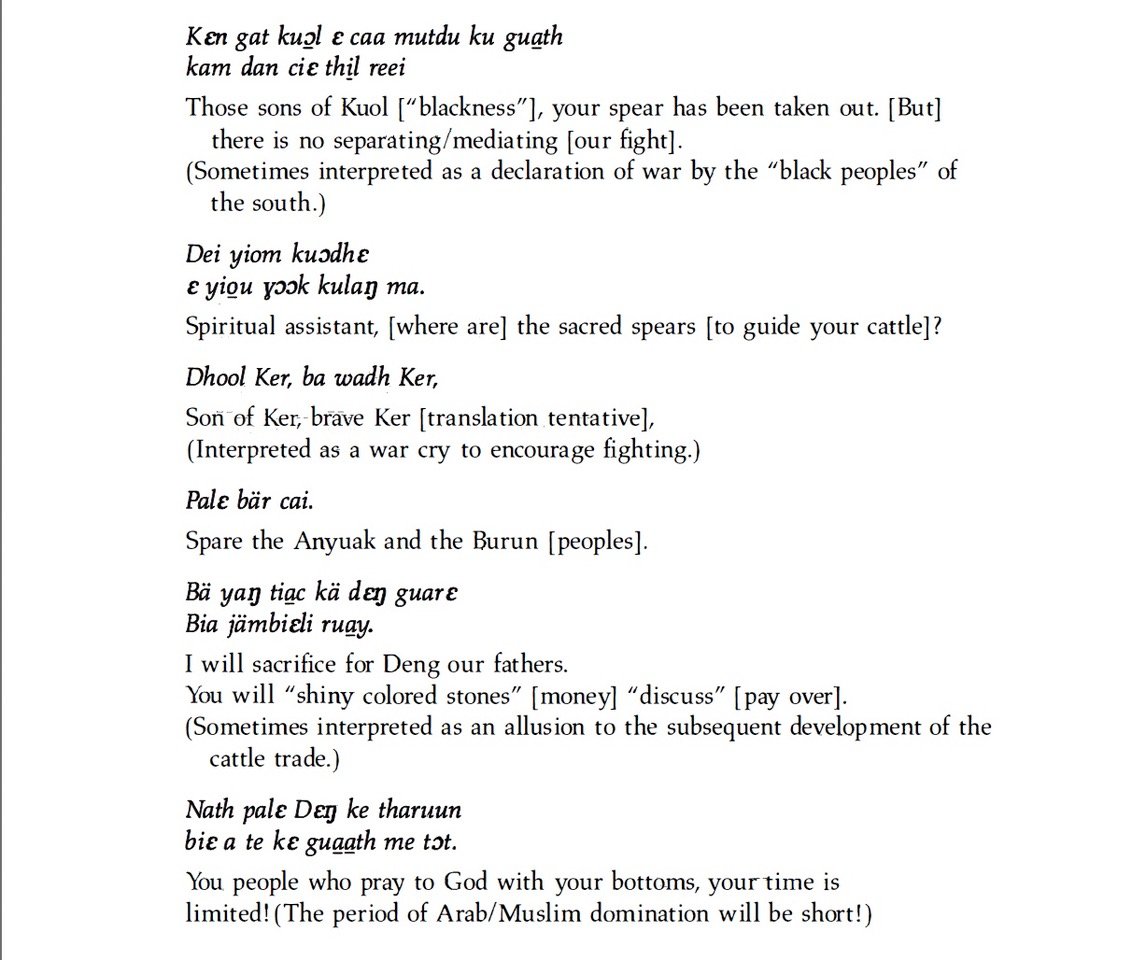Listen to Ngundeang Bong’s Song Predicting the End of Arab/Muslim Domination
Every South Sudanese today knows that Ngundeang Bong (d.1906), the first and most famous of all Nuer prophets, foresaw that Nuer and other “black people” (nei ti caar) of South(ern) Sudan would free themselves from “Arab/Muslim” domination after a long and difficult struggle. This prophecy inspired generations of Nuer men and women to endure the widespread death, destruction and displacement experienced during Sudan’s first and second civil wars (1956-1972 & 1983-2005) with a greater measure of hope, courage and determination. Many war-battered Nuer communities took solace at that time from the idea that all these hardships and losses were necessary steps along a long road leading them to triumph and collective freedom, as was realized when South Sudan achieved political independence in 2011. However, many South Sudanese today may not know the particular song passage where this prophecy is crystalized. While I was conducting periodic field investigations in war-battered Nuer villages and cattle camps during the 1990s and early 2000s, I often inquired about this. Here I offer you access to an audio recording I made in 1994 in which two senior Lou Nuer men identify the specific verses in which Ngundeang predicted the downfall of Arab/Muslim rule. All of Ngundeang’s songs, of course, are gloriously enigmatic—something that ensures future generations of Nuer men and women will continue to uncover hidden truths within them for as long as Ngundeang’s spiritual legacy is remembered.
For South Sudanese and other curious website visitors who may not “hear” Nuer easily, I have provided a tentative English translation for each song verse as well as a simplified Nuer transcription, even though I am aware that both are imperfect and subject to alternative interpretations. I welcome constructive suggestions for improvement from talented Nuer linguists/historians! (Please note this website software cannot display non-English language letters.)
Please note that the word “currently” used in my English translation of this song passage refers back in time to 1994, when I recorded this tape.
Bie Ngundeang, 1979, photo by Sharon E. Hutchinson
Tree and Pool of Goodness, Ngundeang’s Mound, January 1979. Photo by Sharon E. Hutchinson. All Rights Reserved.



